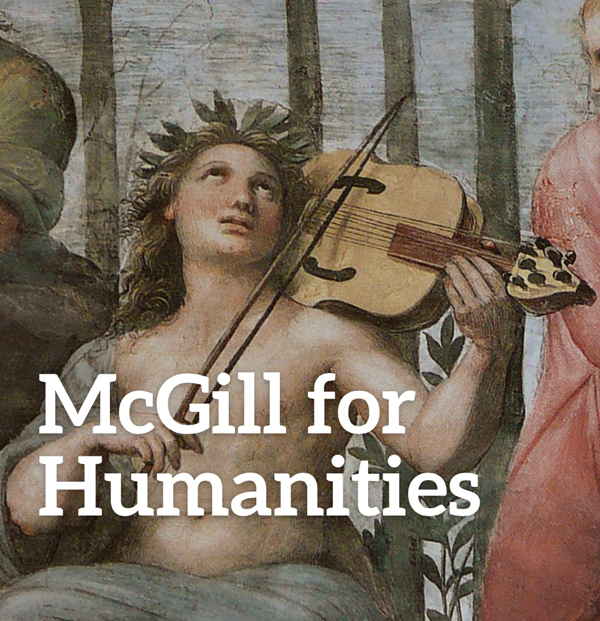 Don’t miss your last chance to take part in this year’s discussion series about the value of studying literature (and history, and philosophy, and…)
Don’t miss your last chance to take part in this year’s discussion series about the value of studying literature (and history, and philosophy, and…)
By Christopher Atack
“Sha na na na, sha na na na na,
Yip yip yip yip yip yip yip yip
Mum mum mum mum mum mum
Get a job…”
—The Silhouettes, 1957
Get a job! Easier said than done, given today’s dismal economic climate – and many parents and students fear that a degree in the Humanities may not be much immediate help. History, philosophy, literature and such are all very well in their own way, according to popular wisdom, but will an education in these areas lead to a decent job? In fact, isn’t the study of humanities really a luxury that most students can ill afford? To address these questions head-on, professor of English Maggie Kilgour organized McGill for Humanities a four-part discussion series offering students and professors the chance to share ideas on the value of a Humanities education in the modern world. The fourth and final discussion will be held on Tuesday April 1, from 3 p.m. to 5 p.m. in Wilson Hall.
“We want to get professors talking about why we think the Humanities matter,” says Kilgour. “Even more, we want to hear from grad students and especially from undergraduates who are not going on to graduate school, about what they think they’re getting from the Humanities, and why it matters to them.” To further stimulate thought and discussion on the topic, Kilgour also organized an essay competition, with a $500 prize for the best essay on Humanities Matter!
The first three sessions, one a month starting in January, each attracted between 40 and 60 students and professors. Participants discussed the importance of studying complex moral issues, examining how people have responded to situations in the past, reviewing the dilemmas countries have historically faced, and considering questions of fundamental importance, such as what constitutes a “good life”?
“Students in the Humanities don’t see education as simply mastering a body of knowledge and gaining useful technical skills,” says Kilgour. “For them, it’s not just about getting a job. They recognize they need that too of course, but they believe they need more than that.”

Are universities really trade schools?
It may not be about getting a job, but the relationship between education and employment is very much top-of-mind in the discussion series and in modern society. “A few years ago, a number of polytechnics were turned into universities,” says Kilgour. “One of the odd and unexpected results was that universities started to see themselves more as trade schools. Somewhere along the line, an unspoken assumption arose: you get a university education to get a job. If you’re going to spend a lot of time and money getting an education, you expect something tangible in return.”
In some cases, the expectation is realistic. Studies in areas such as medicine, law, engineering or business do lead directly to employment. The goal of an education in the Humanities, however, has traditionally been to gain a better understanding of what it means to be a human being – not to procure immediate employment. It’s a tradition that goes back to the Renaissance and even to classical times – and one that many students today obviously feel is worth continuing. Humanities courses at McGill continue to attract large numbers of articulate students, despite the gloomy predictions about job opportunities for graduates.
Is the choice really study Humanities or find a job?
Of course, students of the Humanities are not automatically shutting the door on employment opportunities. While they are less likely to find jobs immediately after graduation, within about five years they are catching up with graduates from other disciplines, and even doing better. A Humanities education may not lead automatically to a job but it does give students analytical and communications skills which are very desirable in many situations.
“My perception is that it’s more important than ever to study the Humanities,” says Kilgour. “The poor economy has generated a widespread utilitarianism. Everything is measured by its cost. By turning to the Humanities, students are pushing back against that. They realize that a society which measures the value of everything by its economic value alone is heading for trouble.”
